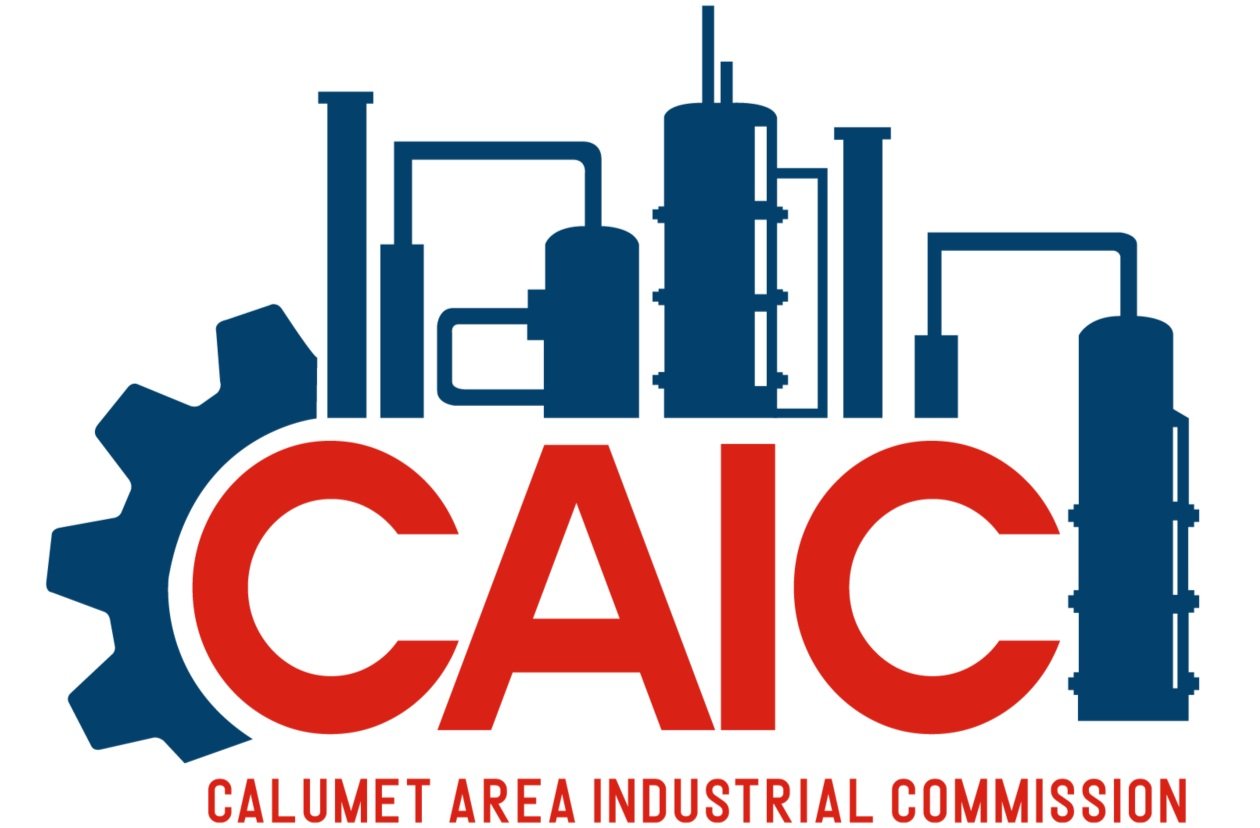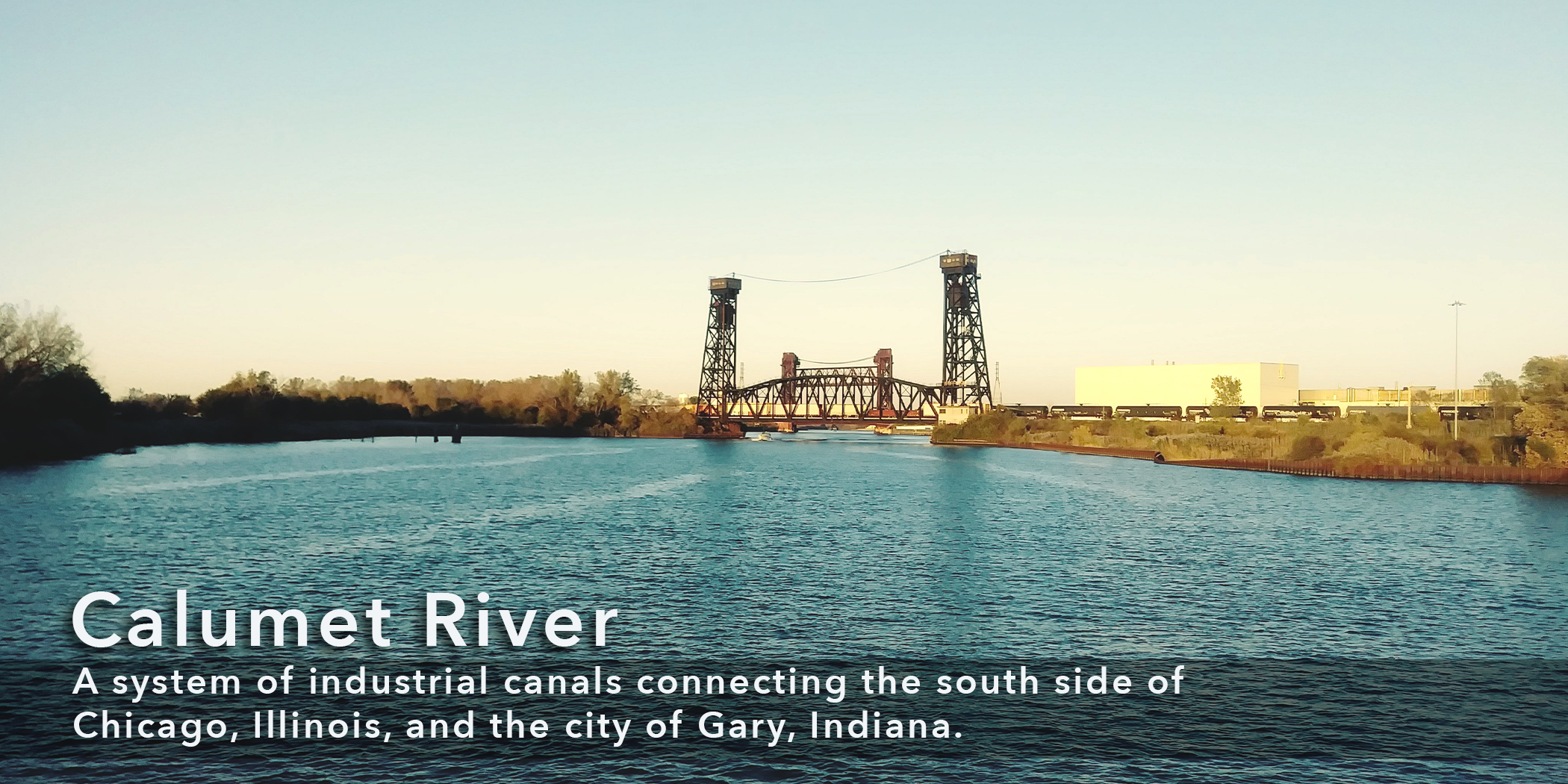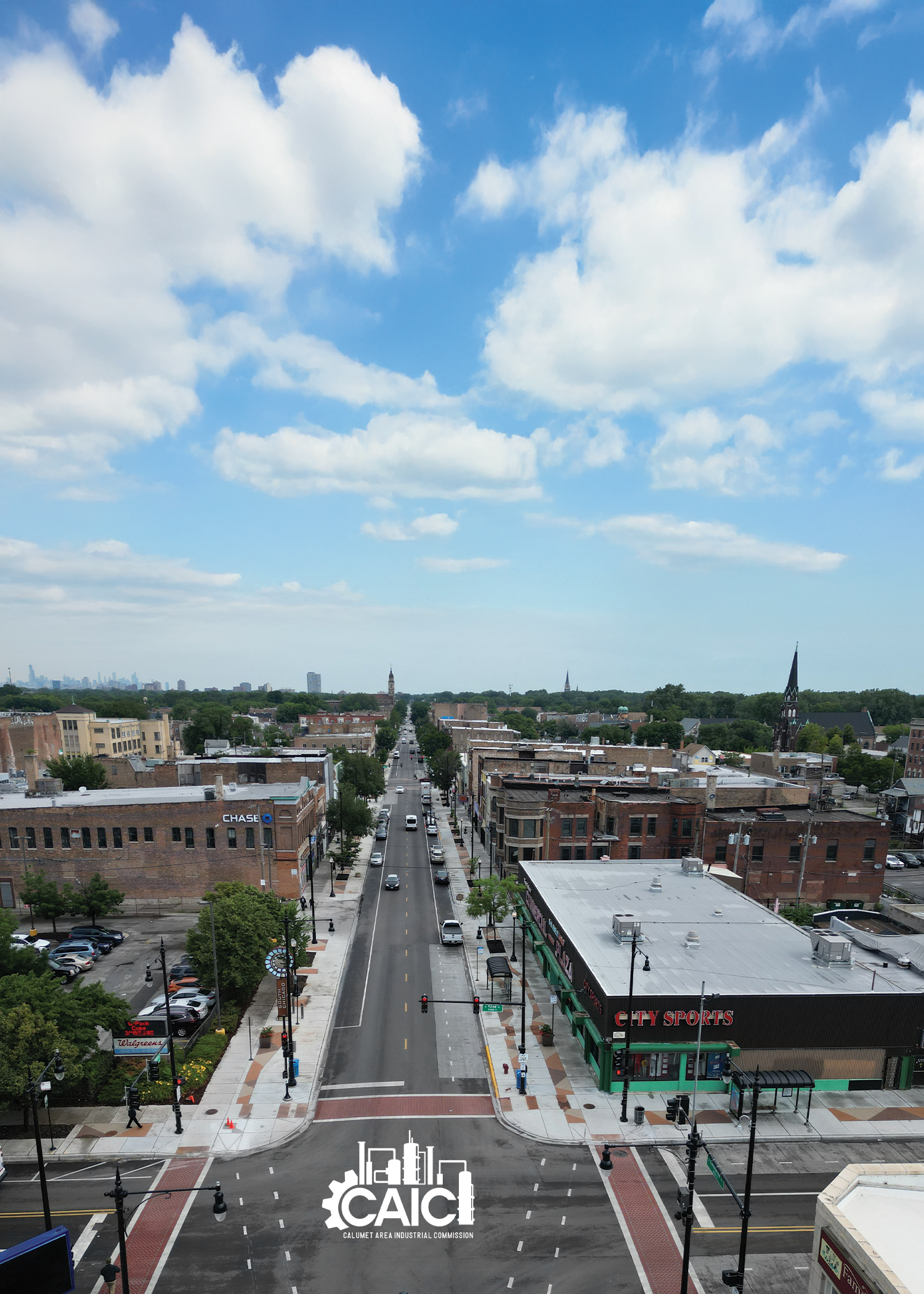Tax Increment Financing (TIF) District
Tax Increment Financing is an economic development tool utilized by the City of Chicago to provide financial assistance to businesses that are investing in parts of the city designated as blighted or in danger of becoming blighted. Funds are usually provided in conjunction with private development projects to build and repair roads and infrastructure, clean polluted land and put vacant properties back into productive use.
Funds are generated through the growth of Equalized Assessed Valuation (EAV) of the designated properties over a period of 23 years. Businesses utilize these new revenues, typically generated by their own properties for specific purposes that are identified in redevelopment agreements. Terms for each agreement are subject to approval by the Community Development Commission and Chicago City Council.
Within the City of Chicago’s boundaries, the Calumet Area Industrial Corridor includes a number of TIF Districts, including the following:
To determine if a certain property is located within a TIF District, refer to the Chicago Department of Planning & Development’s GIS Zoning Map:
Community Development Grant
Funded by the 2024 Housing & Development bond & additional funding sources, the Community Development grant program offers Small, Medium and Large grants to support eligible business-related investments that create and retain jobs and enhance quality of life improvements. For more information, please click the button below.
Enterprise Zone Program
An Enterprise Zone is a specific area designated by the City of Chicago and certified by the State of Illinois to receive tax incentives and other benefits that stimulate economic activity. Existing businesses or businesses relocating to one of Chicago’s six Enterprise Zones can lower operating expenses and increase profits by taking advantage of several incentives offered through the program, including a sales tax exemption on building supplies, a real estate transaction tax exemption and a jobs tax credit.
Below is a link to a map to the boundaries of Enterprise Zone #3, which includes the Calumet Industrial Corridor in the City of Chicago:
Opportunity Zone Program
Created by the Tax Cuts and Jobs Act that became law in 2017, the Opportunity Zone program encourages private investment in designated low-income communities by offering tax incentives to qualified investors. For more information, please click.
Other Economic Development Resources
COOK COUNTY PROPERTY TAX INCENTIVES
The Cook County Property Tax Incentives encourage development of property by offering a 12-year reduction in real estate assessments from the standard Cook County rate of 25 percent. Qualifying properties are assessed at 10 percent for the first 10 years, 15 percent for the 11th year and 20 percent for the 12th year.
There are several incentives:
Class 6(b): Industrial Projects
Class 7(a) and 7(b) Classifications: Commercial Projects
Class 8 Classification: Economically Depressed Areas
Class C Classification: Environmental Contamination
Class L Classification: Landmarks
NEW MARKETS TAX CREDITS
The New Markets Tax Credits program is a federal initiative that generates employment and other economic development benefits in low-income communities. The program works through the Chicago Development Fund to provide federal income tax credits to financial institutions in exchange for investment in businesses or real estate projects in qualifying areas.
INDUSTRIAL DEVELOPMENT REVENUE BONDS
The City of Chicago issues tax-exempt Industrial Development Revenue Bonds (IDBs) and lends their proceeds to manufacturing companies to finance qualified projects that involve the acquisition of fixed assets such as land, buildings and equipment. IDB proceeds may also be used for either new construction or renovation. Tax-exempt bond financing offers long-term financing at rates lower than conventional financing.
NEGOTIATED SALE PROGRAM
The Negotiated Sale Program arranges the sale of City-owned properties for redevelopment. Properties in the department’s inventory consist of vacant residential, commercial, and industrial land and also improved properties. Cost write-downs may be available for projects that provide tangible public benefits, such as site remediation, new or retained jobs, or other features.
Beth Dybala - Director of Economic Development
(773) 928-6000, ext. 224
CAIC IS ALSO A LOCAL INDUSTRIAL RETENTION INITIATIVE (LIRI) DELEGATE AGENCY WITH THE CITY OF CHICAGO. FOR MORE INFORMATION ABOUT THIS PROGRAM, PLEASE VISIT THE CITY OF CHICAGO LIRI WEB PAGE.









